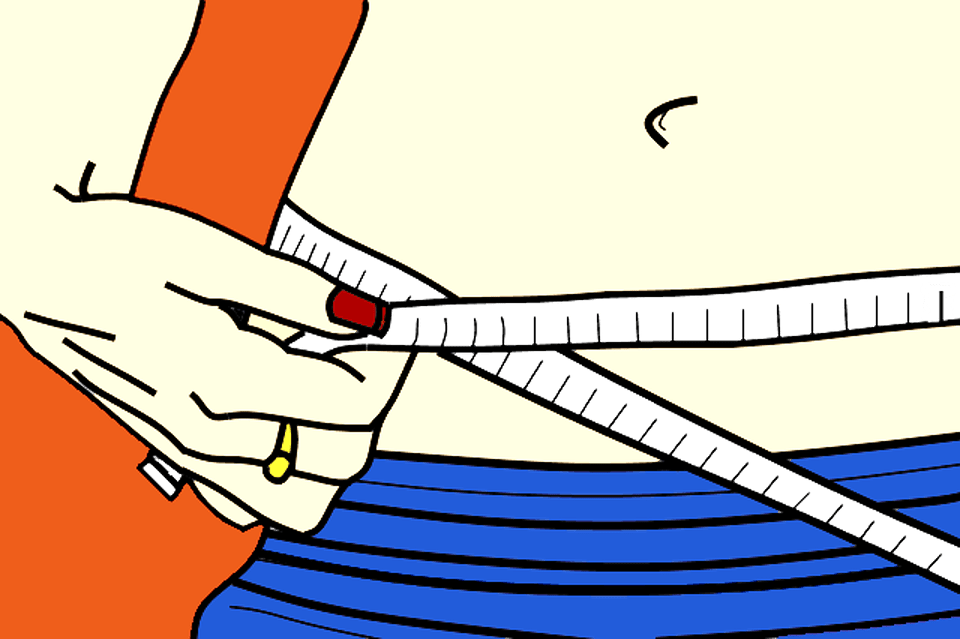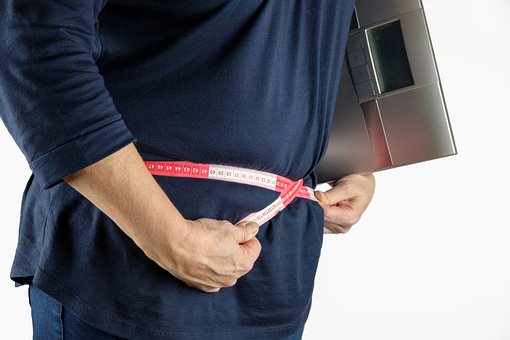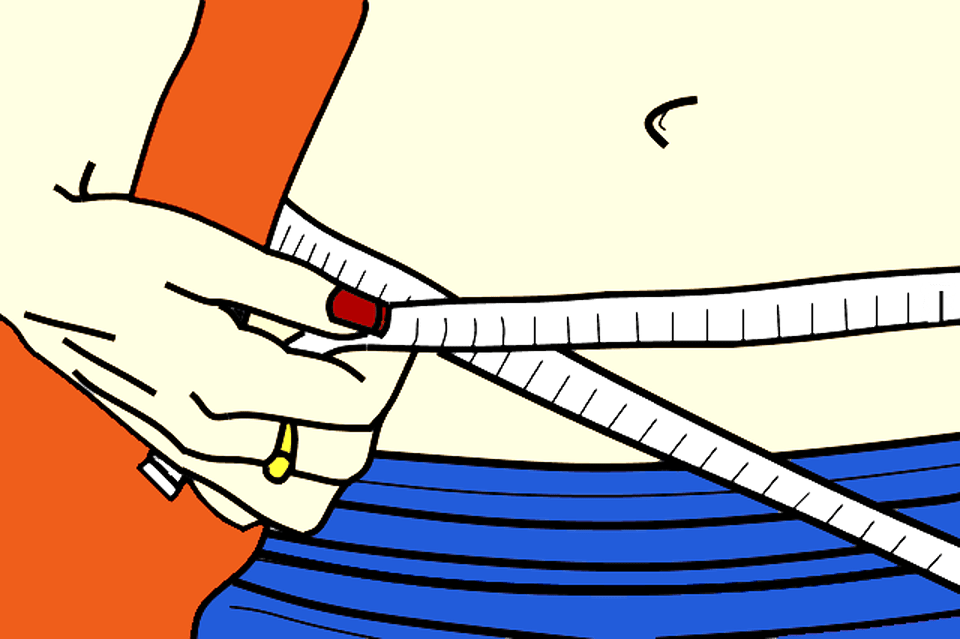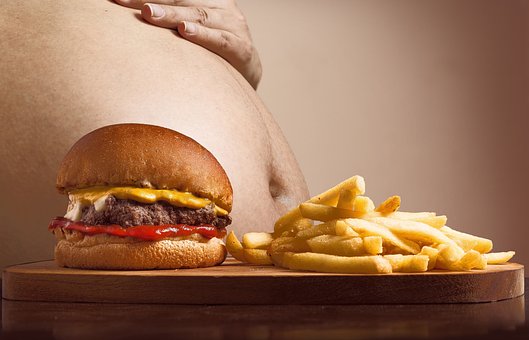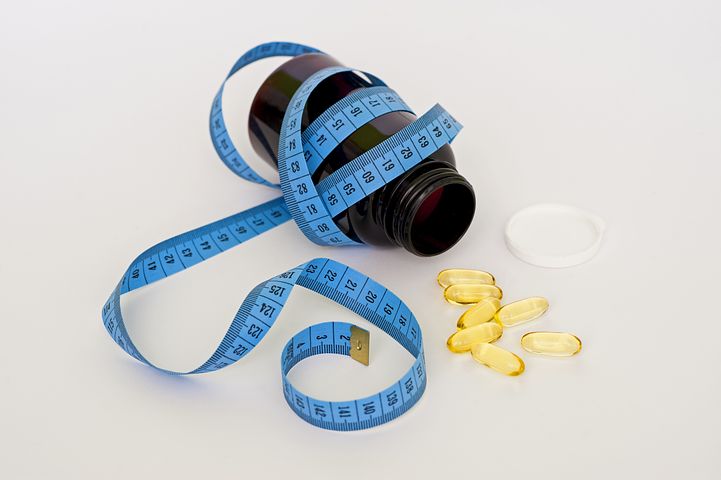
Embarking on a weight-loss journey can be a complex and emotional experience Despite doing everything correctly, it can be very disheartening when weight is not lost. You’re glaring at your scale, wondering why you’re not losing weight, and feeling frustrated.
First, breathe. It is important to exercise regularly and eat well, but these are only two of the many factors that can influence weight loss. Obesity expert Matthew Weiner, MD, says that how much weight you lose on a water fast also depends on your starting weight, age, and gender.
It’s important to set reasonable goals for yourself. Dr. Weiner states that the most accurate method to determine how much weight you can lose through diet and exercise is to calculate 10% of your overall body weight. If you weigh 150 pounds and want to lose weight, you can expect to lose about 15 pounds by making dietary changes and increasing your physical activity. It’s difficult to lose more weight because your body will work to maintain your current fat and energy stores.
According to Dr. Weiner, younger adults can sometimes lose up to 20% of their body weight by eating right and working out. Postmenopausal women are only contributing five to seven percent by doing the same.
Women tend to make slower progress than men. Dr. Weiner states that although men do lose weight faster than women, the difference in the total amount of weight loss over time is not as large as one might believe. It takes men two to three months on average to lose 10 percent of their body weight, while for women it takes five to six months.
Losing 10% of your body weight is a big accomplishment that will require some help. Since information on how to lose weight is not commonly taught in school, it is understandable that you might rely on methods that are not effective.
There are some behavioral reasons that could prevent you from achieving your weight loss goals. Here are some of the biggest ones, along with ways to fix them.
1. You’re way overestimating your muscle weight.
If you’ve ever wondered if your weight gain is muscle or fat after an intense workout, raise your hand.
Dr. Weiner says that most of us have tried to lose weight by drinking lots of water, but it doesn’t work because muscle is similar in density to water. This means that if you are trying to build muscle, but are not re-evaluating your weight-loss strategy, you may not lose any fat.
In order to better understand how dense muscle is, Dr. Weiner recommends comparing it to something with a similar density, like a 16 oz. can of soda. The speaker is imagining what it would be like to add a lot of muscle to their body. They say that if they did this, other people would be able to see the change.
This means that if you have not seen a change in your muscle mass, you should focus on something else. You may want to consider making some changes to your diet in order to create a calorie deficit, which will help you lose weight. Alternatively, you could try HIIT workouts to get your heart rate up and burn fat.
2. You’re eating less, but still picking unhealthy foods.
Dr. Weiner says that if you consume fewer calories than you expend, it’s definitely possible to lose 10 percent of your body weight just through dieting. If you want to lose more weight, you can’t just keep cutting calories. He states that it is necessary to consume different types of food, with an emphasis on vitamins and minerals, rather than simply focusing on the overall number of calories consumed.
Different foods digest at different rates in our body, with some taking longer than others, according to Keri Gans, RD, the author of The Small Change Diet. Foods that are high in sugar are digested quickly, which leaves you feeling hungry sooner than later. On the other hand, foods that are rich in fiber take longer to digest, so you feel full for a longer period of time. Fiber-rich foods help you to feel full and are an easy way to lose weight.
For example, if you usually order takeout for dinner, eating fewer restaurant meals for lunch every week will probably help you lose some weight at first. But eventually, the weight loss will stop unless you make the switch to healthier lunches (like ones made with fewer oils, dressings, etc.) on a consistent basis. Consuming fewer calories will help weight loss continue past the 10 percent point. This will happen naturally once you start consuming better-for-you foods that are more filling.
Even though you might be trying to eat fewer calories overall, it’s still important to pay attention to the types of calories you’re eating, says Jessica Cording, RD, CDN, the author of The Little Book of Game-Changers. She strongly suggests that people consume foods that give many nutrients. For example, it is beneficial to eat whole-grain foods instead of white bread. “The nutrient value will carry you much longer.”
3. You’re not keeping track of what you’re eating.
We tend to see ourselves in a more positive light than we do others, which can lead us to dismiss our bad decisions and emphasize our good ones, according to Dr. Weiner.
Translation? You may think you’re doing something good for your health by eating a salad, but if you then go and eat two bowls of ice cream you’re not going to see any weight loss. When you track your caloric intake with a food journal or app, you become more accountable for what you’re eating and eliminate the bias you have toward yourself, according to Dr. Weiner.
4. You’re not eating enough plant-based protein.
Protein is beneficial as it makes you feel fuller for longer and also helps with muscle, skin, and bone health. There is a big difference between different types of protein when it comes to weight loss. Dr. Weiner is warning people about the dangers of consuming too much animal protein and the fat that comes with it. He says that too much of this can lead to weight gain and other health problems like diabetes.
Proteins that come from plants are different than those that come from animals. They come from legumes, nuts, seeds, and whole grains. Dr. Weiner says you can eat higher amounts of these foods without worrying about negative effects on your health. “There is no evidence that plant-based sources of protein, like nuts, cause weight gain,” he says.
5. You’re not looking at the big picture.
If you’re feeling frustrated because you feel like you haven’t made much progress on your diet even though you’ve been sticking to it for a while, try to remember that even small changes can lead to long-term success. Before you try a fad diet to lose weight, consider whether your goal is to lose weight quickly or lose weight permanently.
While it may be tempting to think about weight loss in terms of a short-term fix, it’s important to remember that it’s a long-term problem. There will be periods of high and low activity every day, just like there are in the stock market.
It is better to think about weight loss in the long term, considering how your weight has changed over time and how you want to feel in the future.
6. You’re not eating whole foods.
If you’re not interested in diets that focus on eating whole, clean foods (such as the Mediterranean diet), you may want to reconsider. The benefits of a diet consisting of whole foods rather than processed foods have been known by nutrition experts for some time now. Those who consume whole foods as part of their diet, such as fruits, vegetables, grains, and protein, tend to see better weight-loss results than those whose diets are made up of processed foods like cereal, crackers, and prepackaged meals.
The study found that when people ate diets that were similar in nutrients, the group that ate processed foods consumed more calories and gained more weight than the group that focused on whole foods.
Cording recommends fitting more whole foods into your diet for greater convenience. You should keep food like frozen produce, oats, whole-grain bread, eggs, frozen fish, and leafy greens in your house. “I also love to put spinach in my morning smoothie.” “It’s easy to mix in a few handfuls of spinach to soups and omelets,” she says. “I also really enjoy adding spinach to my morning smoothie.” You can hard-boil eggs in advance for a quick snack later.
Is there anything that really works?
When you go on diets all the time, your body makes lots of cortisol, which is a hormone that causes stress. This may give you motivation to eat more, even if you are dieting. If your diet, you are more likely to develop heart disease, cancer, and diabetes. You also have the problem of mental health risks. Dieting has been proven to increase psychological stress.
Cortisol is a stress hormone that can cause weight gain. This hormone increases energy levels. If you are dieting and not consuming enough calories, your body will release the stress hormone. If you don’t start eating less, you’ll continue to have strong cravings and your body will start to break down.
Weight gain from chronic stress is linked to coronary heart disease, high blood pressure, and diabetes. Dieting increases stress levels by making you constantly count calories, avoid foods you love, and hit weight plateaus. A new cycle of weight gain and loss has begun.
Fad Diets
Many fad diets require you to purchase special foods, supplements, or pills in order to follow them. This can be restrictive and inconvenient. The appeal of a diet that promises quick, easy weight loss is understandable. However, once you finish the diet, you are left to fend for yourself, with no support from the diet program. What this means is that you not only fail to lose weight, but you also gain back the weight you had lost, and then some.
Fad diets are not an effective way to lose weight because they are only temporary. Diet fads that cut out certain food groups or rely on supplements are not good for you. They lack nutrition and can cause health problems. The consequences of years of fad dieting may include weak bones, anemia, and rapid weight gain in later life.
The health risks associated with yo-yo dieting (dieting, stopping, and dieting again) can be significant. If you feel you need to go on a quickie diet to lose a few pounds for an important event, you should be aware of the potential consequences. Weight cycling (repeatedly gaining and losing weight) can lead to cardiovascular disease, diabetes, and stroke, as well as affect immune function.
Exercise to Lose Weight and Keep it Off
A fable about a tortoise and a hare can be used to teach a moral lesson about dieting and losing weight. The hare zipped off and tried every diet known. The tortoise, which was much slower than the cocky hare, just kept exercising thirty minutes a day, eating healthy, and following food charts. He patiently crossed the finish line. To lose weight, you need to be dedicated and determined to achieve your goals. A fit and healthy lifestyle requires ongoing effort, including regular exercise and healthy eating habits. Relying on quick-fix solutions that promise fast results is not a sustainable approach to weight loss or fitness. If you don’t start with small goals and stay consistent, you’ll eventually give up from being overwhelmed. Pace yourself and be slow but steady.
Losing weight can help improve your mood and lose depression. Working out at least thirty minutes a day can improve heart health, blood sugar levels, and prevent arthritis. Exercising at the gym a few times a week, utilizing the treadmill and elliptical machines, may prove beneficial. Talk to friends and join an exercise group.
Keep your exercise routine interesting by incorporating a variety of activities, such as walking, gardening, biking, and yoga. Find something that is both active and enjoyable. Walk your dog or someone else’s dog. This helps improve cardiovascular health, helps with weight loss, and benefits the dog as well.
Lose weight slowly and steadily, and keep it off. Do some form of aerobic exercise, stretching, strength training, and weightlifting every day, but vary your routine. The most important part is to keep moving for at least half an hour each day. You may not realize it, but when you think about it, you probably already do some type of exercise every day. Just change your attitude and be aware of exercising. Do it every day. Think like the tortoise. Win the race.
Diet and Nutrition
There are food planners and healthy eating shopping lists available online and through support groups. This can help you to work out what you need to buy to make sure you are eating healthily. You do not always have to count calories. If you want to lose weight, you should try using food lists to help you cut down on the number of calories you’re eating every day. For men, this means eating no more than 1,600-1,900 calories per day; for women, it means eating no more than 1,500-1,700 calories per day. Amazing results will be your reward.
Superfoods are foods that are rich in nutrients that help build bones, prevent chronic disease, and keep your mind sharp. Food can help you lose weight and stay slim.
Dieting is a billion-dollar industry. The products mentioned may help people lose weight, but the only proven method is to maintain a healthy lifestyle with a balanced diet and regular exercise. You don’t have to go to extremes to be successful.
When you feel full, take yourself away from the table, set smaller portions on your plate, and get some exercise every day. Walk, ride a bike, or swim. There is nothing better than being satisfied with a great small meal and taking a walk after dinner. I always feel so much better after I’ve taken a walk, even if it’s just around the block. It’s not about the number of calories you consume or how many pounds you lose, it’s about seeing results in the mirror.

